“Getting to throw up on Jack Quaid was definitely some of the most fun I’ve had in all the seasons”: Karl Urban and Jensen Ackles on The Boys: Season Three

As the third season of The Boys drops on Amazon Prime viewers will see this new chapter bring series regulars back to life alongside a slew of brand new characters. The array of explosive storylines and action on this much-loved vigilante superhero show are based on the New York Times bestselling comic book of the same name by Garth Ennis and Darick Robertson (who also serve as executive producers on the series).
The complex drama sees a year of calm overturned by more conflict between The Boys and The Seven, with plentiful scenes of gore, grotesque sexual themes and political satire as they all turn their interests towards the legend of the original superhero: Soldier Boy.
The Upcoming had the pleasure of speaking to Karl Urban (Billy Butcher) and Jensen Ackles (Soldier Boy) about their journeys in this new season, how Jenson prepared for his role as a series newcomer and the different dynamics within the cast in this new season.
Jensen, as the new kid on the block for season three, there were comparisons made to Captain America when your character was first announced. Do you think fans and viewers are still going to have that perception of your character after this season?
Jensen Ackles: Yes, I think so. It’s no secret that a lot of these characters in The Boys are certainly modelled after very famous superheroes that we all have known and grown up with. Soldier Boy is this world’s Captain America. He’s kind of the original superhero. He gets brought back into the fold after being essentially in captivity for some thirty-odd years. So there is certainly that Captain America aspect but done in The Boys fashion.
After so long on the show Supernatural with Eric Kripke, were you expecting a call from him to jump on this show?
JA: Funnily enough, it was a call from me. I called him about something unrelated and at the end of the call, I said, “Hey, when are you gonna have me over to The Boys? You know, I’m unemployed pretty soon”. And that got the ball rolling and here I am.
We find out Butcher gets powers in this season. How did the process of filming those superpower scenes differ from Dredd and Ragnarok?
Karl Urban: Oh, interesting question. Well, fundamentally, it’s the same, you are imagining elements that aren’t there and that is just part of the craft of acting, and when you are working with a child actor, you have to shoot them first because there are only a limited amount of times when you come and do your side of the scene. The fundamental skill set is exactly the same, but it was really interesting to try and mine new territory. When Butcher utilises his powers, he emits these lasers from his eyes that would actually be immensely painful. But ultimately he’s human and he hasn’t been doing that since childhood like Homelander.
How did you feel when you heard about Herogasm being brought to the screen in this series? How did that feel for you reading that in the script?
JA: I didn’t read the comics on purpose because I was told not to by Kripke. He was like, “Stay away from them, I don’t want that to influence what we’re going to create for you and what you bring to the table”. So I had only heard about Herogasm through a friend of mine who was a very big fan of the comic books. He was like, “I just want to say you guys are actually going to tackle Herogasm in this season. I didn’t know what it was and then he told me and I was like, “Oh, shit”. We do tackle it, but it is certainly not a verbatim depiction of what the comics wrote, but it is certainly stuff that I can’t un-see.
We’ve had Billy and Homelander, two alpha males in these past two seasons, then we’re introducing Soldier Boy into the equation. So now we’ve got these apex predators interacting throughout season three. Can you talk about the dynamic that plays out between these three characters, trying to vie for control of the overarching narrative?
KU: For me, the starting point of the season comes with Butcher’s palpable frustration at his inability to fight the way that he wants to and through the course of events that unleash Soldier Boy, he comes to understand that this could be a formidable weapon to utilise and so does it and it sets forth a series of events that change the whole world. There are some significant challenges to Butcher’s plan. But, in true Butcher fashion, every plan that he has generally turns to custard and this one goes sideways in a big way. It’s interesting to really see that power dynamic though. That triangle actually shakes out who you think is the apex predator.
JA: It was certainly a collision course from the very start. Butcher and Homelander have been on a collision course since day one so to bring another kind of apex predator into the mix, it’s just going to make things even more messy when everything does collide. And like Karl was saying, just when you think, you know, A is going to get to be on top, then all of a sudden B comes out shining, or then C all of a sudden rears up and takes control. It’s a great dynamic, and it makes for really entertaining television.
Karl, one of the best dynamics on the show is you and Jack Quaid as Huey. Could you talk a bit about how that relationship is going to develop as you’re both taking this Compound V and also how fun it was to throw up all over his face?
KU: It was so cool to actually get to play scenes and be in alignment with Huey again because, when the characters were introduced in season one we were very much a team and then they fractured that friendship in season two. To have all this wealth of scenes to play where we are back on the same page again was so much fun. Getting to throw up on Jack Quaid was definitely some of the most fun that I’ve had in all the seasons.
Jensen, you previously mentioned that you didn’t read the comics, how did you prepare for the role of Soldier Boy?
JA: I spoke loosely with Kripke about it and then I just let it jump off the page. He writes so descriptively and in such a simple way. I always think that’s the mark of a great writer. They can tell you so much with very few words, through the dialogue or through the description and just telling me to do my thing. So I just kind of stuck to my instincts and let the script guide me and that’s what we got.
Karl, you’re returning again for the third season. What can we expect from your character in this series? What are the deeper themes for you? What changes for you?
KU: We find Butcher at the beginning of this season as a man who is not processing the grief after the loss of his wife and he is probably frustrated with his inability to take the fight to Homelander or with The Seven the way that he would like to. He’s presented with a moral dilemma: whether to turn himself into the very thing that he is fighting against and also the repercussions that that choice has, and crossing that boundary has on everybody around him. Eventually, other characters have to make that same choice and it’s a threshold that some characters will not cross. It leads to interesting new alliances and fractious relationships, and the whole world changes as a result. Butcher has also been charged with the responsibility of looking after Ryan as he promised his wife that he would do that but this pathology, this obsession of Butcher’s to seek revenge on Homelander is completely counterproductive to the ambitions and responsibilities of being a responsible parent. Those two aims and goals are at loggerheads. So, in true Butcher fashion, everything goes sideways pretty quickly.
Speaking to Kripke, he brought up the topic of toxic masculinity being a key theme in this season. As actors, how do you approach such a difficult topic, especially one that’s in the public eye? And in the corporate world as it is?
JA: I definitely was tasked with doing a lot of that with Soldier Boy, because he’s a character from a different era but, in today’s climate, he should be cancelled immediately. So, for me, I just think about everything that I could do that would cancel me. Just play that strategy. It’s a good strategy. I think Soldier Boy’s from an era when they didn’t call them out. They just sucked it up and they let him be as toxic as he wanted to be because he was the alpha male. So it was quite easy to kind of just tap into all that’s wrong.
KU: What we come to understand about Butcher in this season is he is actually acutely aware of his toxic masculinity. His response to that, his safety valve, is to put people around him who keep that in check. But with all said and done through this season, not even those checks and boundaries are enough to satiate this lust that he has to get revenge on Homelander.
What was it like working with each other for those last few episodes and – without giving too much away – what we can expect to see from you?
KU: Jensen was such a fantastic addition to the cast. He came in and was immediately embraced by the entire cast. We quickly established that he was a heavy hitter on set and I think that everybody was actually really excited to work with him and whether he’s aware or not, he really helped raise everybody’s level. He has the ability to identify what is a weakness or a problem and then turn it into a strength. We were so blessed to have him on our show and I’m super excited for audiences to see what he’s done.
JA: Thanks, man. The last few episodes are some of my favourite scenes that I did throughout season three. One, in particular, we talked about earlier was there’s a scene between Soldier Boy and Butcher that isn’t the most outrageous or explosive fight scene. It’s a quiet scene and it’s in those quiet scenes that I feel like you really get a sense of who these characters are. You really get to peel back those layers. It becomes more personal to the audience and you get the nuance and you get that minutia that really make a character a character. Those are the scenes where I get to grow and having a scene partner like Karl just makes it even that much more rich.
KU: That’s the genius in Kripke’s writing: even the most intolerable characters who do and say terrible things, he finds a way to imbue them with a sense of humanity or weakness or pain that an audience can identify with and which in a way you find yourself, maybe not entirely forgiving them for their flaws, but to certainly understand them.
Ezelle Alblas
The Boys: Season Three is released on Amazon Prime on 3rd June 2022.
Watch the trailer for The Boys: Season Three here:


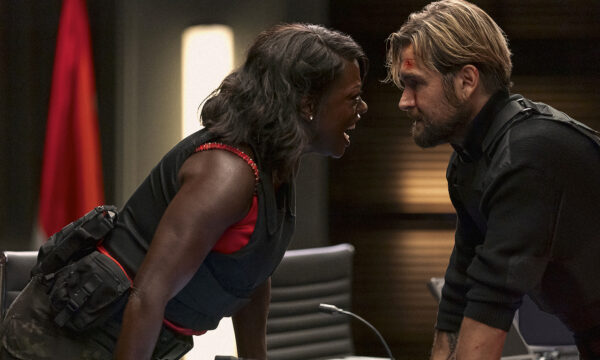
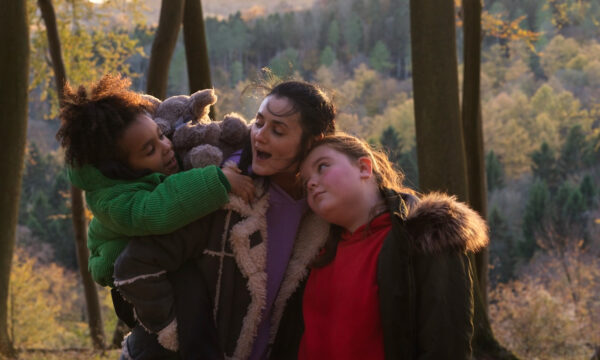
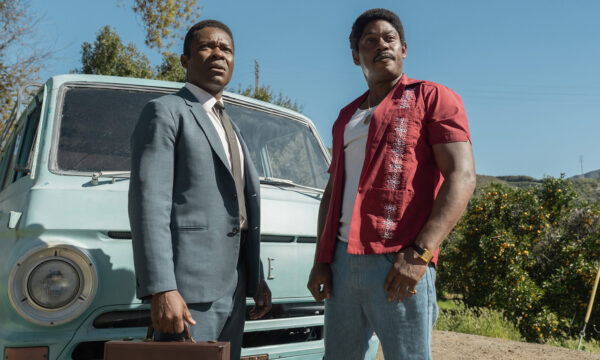
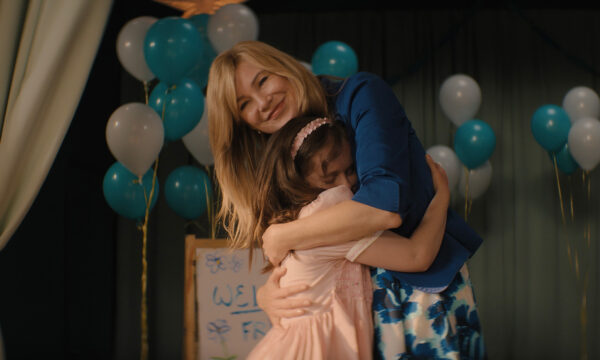
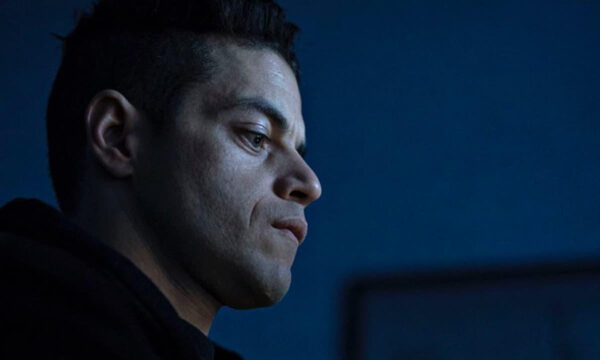
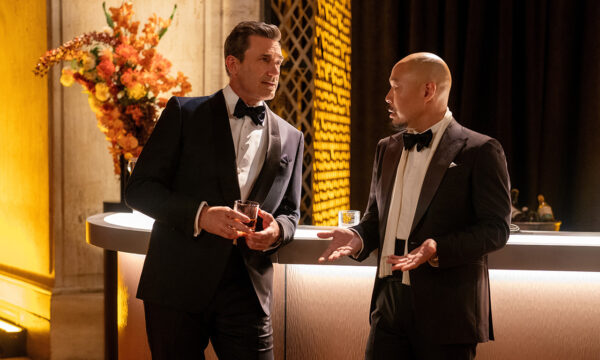
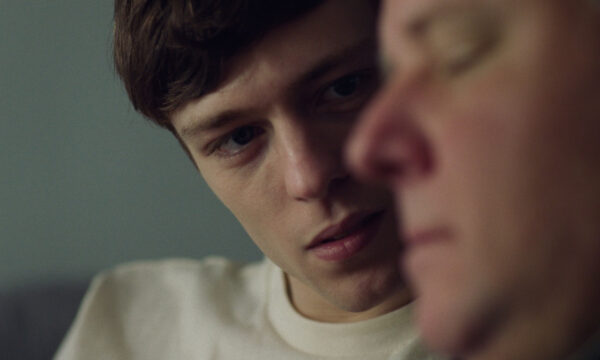














Facebook
Twitter
Instagram
YouTube
RSS